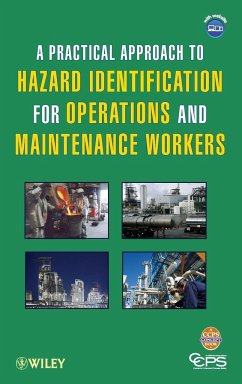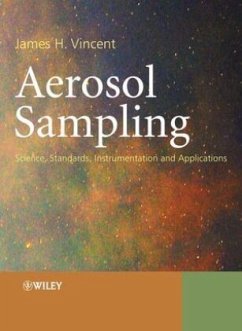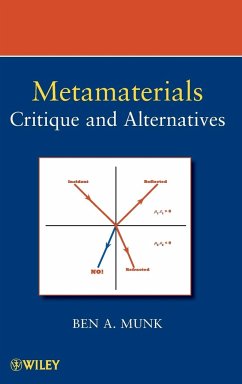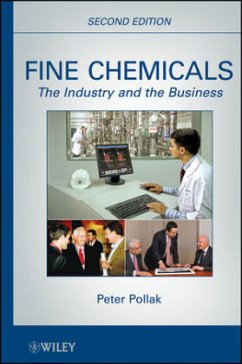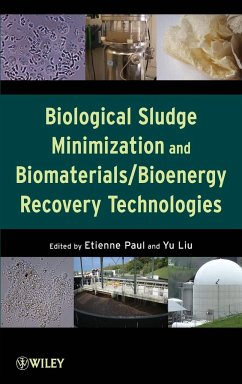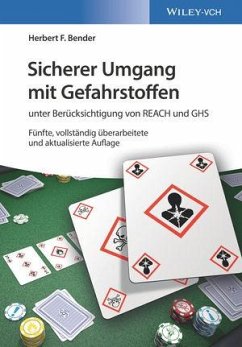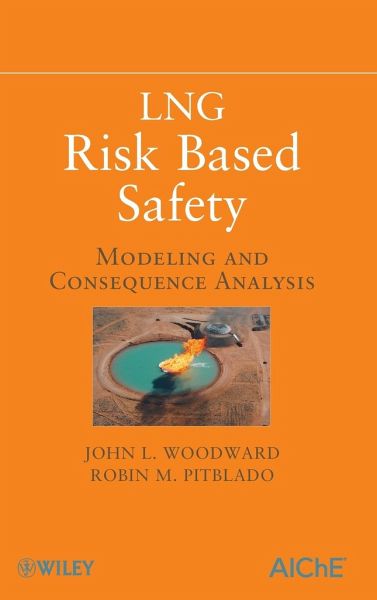
LNG Risk Based Safety
Modeling and Consequence Analysis

PAYBACK Punkte
75 °P sammeln!
The expert, all-inclusive guide on LNG risk based safetyLiquefied Natural Gas (LNG) is the condensed form of natural gas achieved by cryogenic chilling. This process reduces gas to a liquid 600 times smaller in volume than it is in its original state, making it suitable for economical global transportation. LNG has been traded internationally and used with a good safety record since the 1960s. However, with some accidents occurring with the storage and liquefaction of LNG, a good understanding of its mechanisms, and its potential ramifications to facilities and to the nearby public, is becomin...
The expert, all-inclusive guide on LNG risk based safety
Liquefied Natural Gas (LNG) is the condensed form of natural gas achieved by cryogenic chilling. This process reduces gas to a liquid 600 times smaller in volume than it is in its original state, making it suitable for economical global transportation. LNG has been traded internationally and used with a good safety record since the 1960s. However, with some accidents occurring with the storage and liquefaction of LNG, a good understanding of its mechanisms, and its potential ramifications to facilities and to the nearby public, is becoming critically important. With an unbiased eye, this book leans on the expertise of its authors and LNG professionals worldwide to examine these serious safety issues, while addressing many false assumptions surrounding this volatile energy source.
LNG Risk Based Safety:
Summarizes the findings of the Governmental Accountability Office's (GAO) survey of nineteen LNG experts from across North America and Europe
Reviews the history of LNG technology developments
Systematically reviews the various consequences from LNG releases-- discharge, evaporation, dispersion, fire, and other impacts, and identifies best current approaches to model possible consequence zones
Includes discussion of case studies and LNG-related accidents over the past fifty years
Covering every aspect of this controversial topic, LNG Risk Based Safety informs the reader with firm conclusions based on highly credible investigation, and offers practical recommendations that researchers and developers can apply to reduce hazards and extend LNG technology.
Liquefied Natural Gas (LNG) is the condensed form of natural gas achieved by cryogenic chilling. This process reduces gas to a liquid 600 times smaller in volume than it is in its original state, making it suitable for economical global transportation. LNG has been traded internationally and used with a good safety record since the 1960s. However, with some accidents occurring with the storage and liquefaction of LNG, a good understanding of its mechanisms, and its potential ramifications to facilities and to the nearby public, is becoming critically important. With an unbiased eye, this book leans on the expertise of its authors and LNG professionals worldwide to examine these serious safety issues, while addressing many false assumptions surrounding this volatile energy source.
LNG Risk Based Safety:
Summarizes the findings of the Governmental Accountability Office's (GAO) survey of nineteen LNG experts from across North America and Europe
Reviews the history of LNG technology developments
Systematically reviews the various consequences from LNG releases-- discharge, evaporation, dispersion, fire, and other impacts, and identifies best current approaches to model possible consequence zones
Includes discussion of case studies and LNG-related accidents over the past fifty years
Covering every aspect of this controversial topic, LNG Risk Based Safety informs the reader with firm conclusions based on highly credible investigation, and offers practical recommendations that researchers and developers can apply to reduce hazards and extend LNG technology.



![Guidelines for Chemical Transportation Safety, Security, and Risk Management [With CDROM] Cover Guidelines for Chemical Transportation Safety, Security, and Risk Management [With CDROM]](https://bilder.buecher.de/produkte/22/22583/22583631n.jpg)
